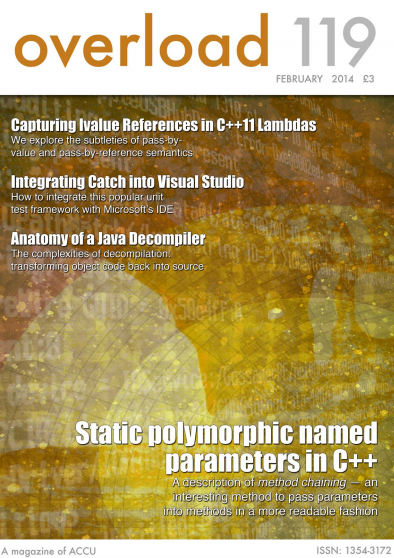C++ Papers for Issaquah - Library I
The third part of my series about the papers for Issaquah is about the first batch of library proposals
C++ Papers for Issaquah - Library I
by Jens Weller
From the article:
The 3rd part of the C++ papers for Issaquah series will be about the library proposals. The last part covered the papers from concepts, database and evolution. There are a lot of proposals from the library group, and I think some of them are the most interesting, as they don't have any impact on the core language.

 As interest in C++ keeps rising, there are more C++ events but they are also selling out faster. C++ Now 2013, Going Native 2013, and C++ and Beyond 2013 all sold out, some six months before the event.
As interest in C++ keeps rising, there are more C++ events but they are also selling out faster. C++ Now 2013, Going Native 2013, and C++ and Beyond 2013 all sold out, some six months before the event. Overload 119 is now available. It contains the following C++-related articles, and more:
Overload 119 is now available. It contains the following C++-related articles, and more: